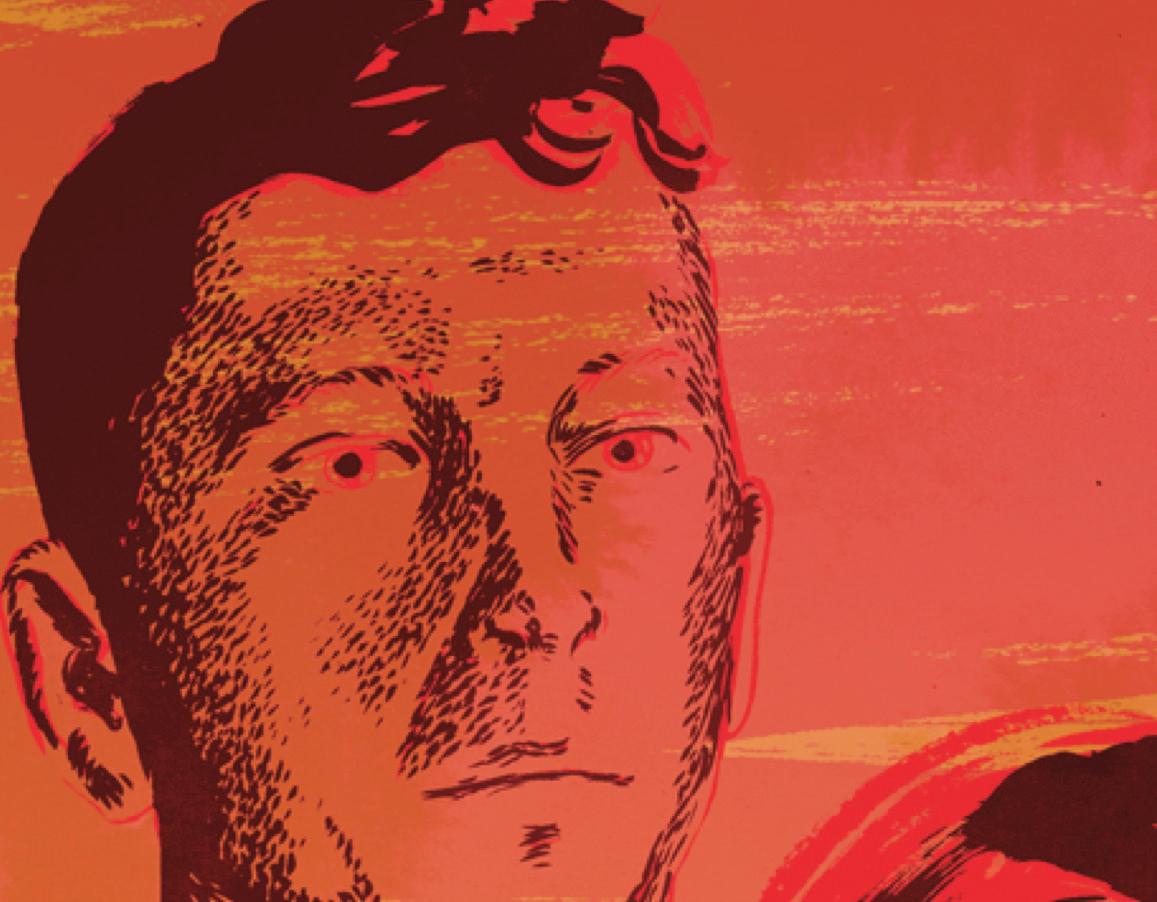
7 minute read
ISHMAEL ENSEMBLE ISHMAEL ENSEMBLE
ELECTRONICA & JAZZ COLLECTIVE
ELECTRONICA & JAZZ COLLECTIVE
Advertisement
Illustration: Luke Dye-Montefiore
Members: Peter Cunningham, Holysseus Fly, Jake Spurgeon, Stephen Mullins, Rory O’Gorman Illustration: Sophia Jowett Helmed by producer and saxophonist Pete Cunningham, Ishmael Ensemble’s music straddles the worlds of jazz and electronica Underpinned by a regular core band, the collective’s music has been increasingly shaped by a shifting cast of guest collaborators – most ambitiously in 2021’s Visions Of Light How did you arrive at this concept of building the sound of different pieces around different collaborators, and what do you think it enables you to do beyond a conventional band of fixed membership?
Peter Cunningham: The original idea came from being bored of making sample-based music. I’d spend hours looking for the perfect kick drum in a random sample pack, or laboriously go through mountains of records in search of the perfect loop, and concluded it would be much more fun to make my own samples with the people around me instead. Since then, it’s almost become two things at once. In the studio it’s a producer project for me to explore ideas with lots of different vocalists and instrumentalists, whereas on stage the live show is all about the core five of us acting more like a traditional band, and all the camaraderie that comes with that. We do invite the guest vocalists to join us when it’s feasible, but at this stage we’re not able to afford to put 10 people on the road regularly; it has become crucial that the live show stands up on its own (10?) feet with the five of us.
What first drew you to the idea of merging live instrumentation with electronic production, and how do you see Ishmael Ensemble as relating to your peers in Bristol – such as SCALPING and Sunun –who are engaged in similar practices?
PC: I think a big part of it comes from always being a fan of electronic music, but often being underwhelmed by the way it is presented live. SCALPING’s Alex Hill and I have actually chatted a lot about our respective set ups, and what’s worked and what hasn’t. We both play with live drummers who need to be in sync, but we are also adamant about not having a laptop on stage. 20 setups later (using a variety of drum machines, click boxes and midi syncs), I think we’ve worked it out in a way that allows us to still be flexible and interesting without relying on Ableton or backing tracks. A big thing for me has always been making sure there’s enough elements on stage that could potentially go wrong: keeping us on our toes, and in turn not getting too relaxed in the way the music is performed. There’s nothing worse than watching a band play through the same set for the 100th time, looking like they’re wondering whether or not they’ve left the oven on.
The title-track to your debut release Songs For Knotty opens as a yearning, contemplative ambient piece, before shifting into a propulsive dance setting These two ideas seem in frequent conversation in your work, from similar structural changes in tracks such as ‘The Chapel’ (A State Of Flow) to their elegant coexistence in tracks like ‘Morning Chorus’ (Visions Of Light) What draws you to this use of dance beats in more melancholic contexts, and what do you think the effect of this interplay is?
PC: I guess it comes from being as much a fan of delicate ambient music as I am of frenetic jungle or slamming techno. It’s also the sum of what the various members in the group have to offer. Mullins’ guitar work is very expansive, and takes great inspiration from the worlds of Robert Fripp and Brian Eno. That becomes combined with Rory’s super heavy-hitting drums, as well as mine and Jake’s backgrounds messing about with synths and chopping samples up. It’s a tried and tested formula, but I love playing with tension and release. That’s the general trajectory of our songs: how long can we keep you in suspense, to make the payoff more rewarding? I also fondly remember my more hedonistic days of discovering rave music, and everything that went with it I think that’s where a lot of the more euphoric moments in our songs come from. It’s also about what serves the song for us. Rory isn’t offended if what a track actually needs is a massive 909 Kick instead of a live drum take. The same goes for Holly having her voice mangled into something completely unrecognisable, like on ‘Wax Werk’. If it works, it works!
The release of Visions Of Light resulted in something of a breakthrough for Ishmael Ensemble – leading to national press and radio acclaim, international touring, and a notable appearance in the BBC documentary Jazz UK: Spitting Fire How has this traction in the industry influenced your approach to Ishmael Ensemble?
PC: There’s certainly been a turning point since the release of Visions of Light , although for every great thing that goes public there’s five failures or disappointments behind the scenes. There’s a lot of hard, sometimes fruitless work done by everyone, but it’s all worthwhile when the successes do come. I think we’re all really proud of what we’ve done so far, especially having done it completely independently with a very small team We’re currently working on new material, and it’s definitely the first time I’ve felt like there’s an audience and an expectation for what comes next. At the same time, I want to keep things interesting for myself and not feel the pressure to stick to the same old formula.
Your recent release ‘The Rebuke’, led by Holysseus Fly, is one of your finest pieces to date and your first standalone single release What can you tell me about its creation?
PC: It was actually made during the VisionsOf Light sessions, but didn’t really fit the tone of the album. We sat on it, fell out of love with it, then returned to it nearly a year later. I feel the track really captures the five of us beautifully and what we each bring to the table. It’s quite an odd song in theory: one verse that repeats three times, without any strong hook or chorus to grab hold of However, it somehow works. I think it’s all about the contrast: Holly’s voice against Rory’s break-neck drums and Jake’s pummelling bass. It started much the same way as many of our songs do: me playing with loops of Mullins’ guitar from various ambient bits he’s sent me, eventually forming the triplet pad sound that underpins the whole song. I’ve also always wanted to do something that nods to the drum and bass I was obsessed with as a teenager: Ram Trilogy’s Screamer and Drumsound & Simon Bassline Smith’s The Odysseywere points of reference.
Your New Era EP sees you collaborate with Rider Shafique, who has previously graced our pages as part of Young Echo. What drew you to working with Rider, and how did this influence the record sonically?
PC: I first came across Rider Shafique about six years ago after I heard his piece I-Dentity via Bristol’s Young Echo collective, and was immediately struck by his powerful way with words. We met a few years later at Stroud Jazz Festival through a mutual friend, and began carving out ideas to collaborate on. We started recording a few weeks later at Josh “Selecta JMan” Lear’s studio in the back of The Jam Jar. I’d never witnessed anyone write like Rider does. We’d just sit with the instrumental playing on loop whilst he scribbled ideas down. When he was ready (sometimes after 10 minutes, sometimes an hour) he’d get up and tell Josh to turn the mic on. What came next was always incredible: he’s a true master of his craft. This record was also an opportunity to lean into the bass-heavy side of my music taste. I’ve always been a massive fan of dub in all its forms, and producers like King Tubby, Adrian Sherwood and Pinch have been a constant source of inspiration. This palette coupled with a voice like Rider’s is something I’ve always wanted to make
What would you like to imagine people taking away from your music?
PC: I started this thing from my laptop with the idea of recording a few mates. I rarely take stock of what it has become, and how far we’ve come. Although a little cliched, I guess the main take away would be that if you stick to your guns and really believe in what you’re doing, anything is possible.
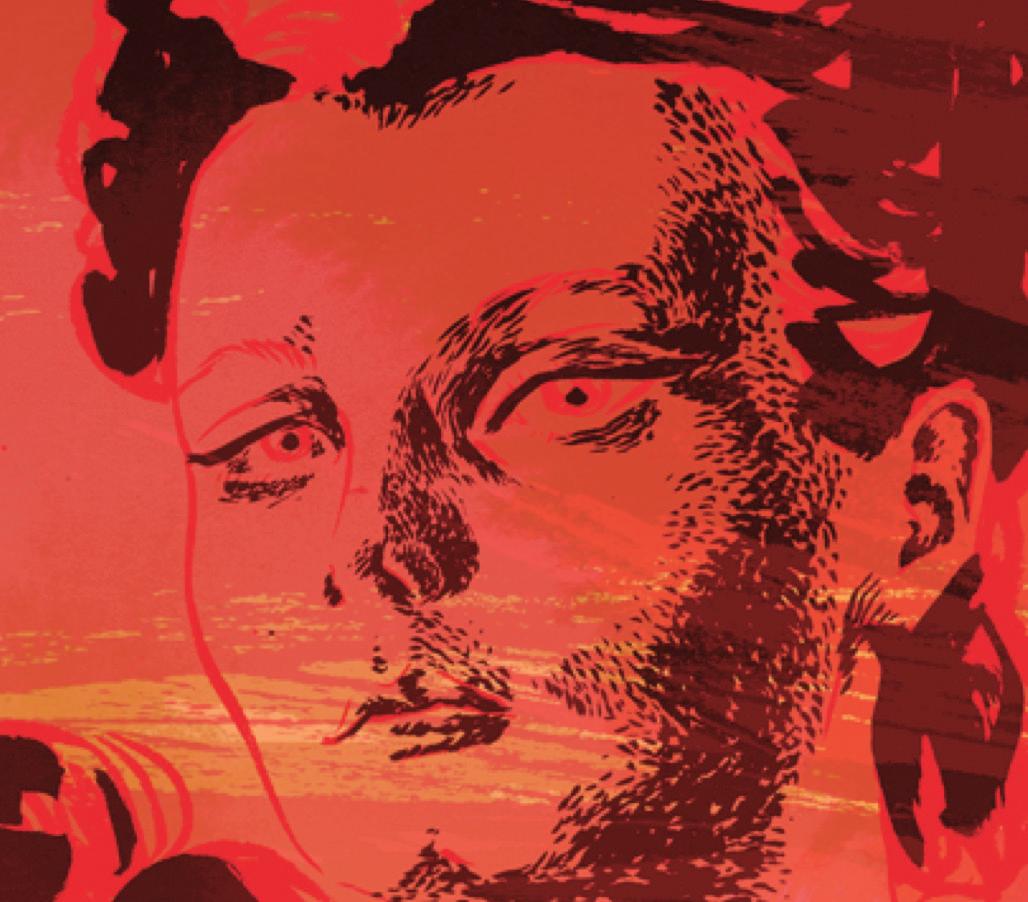
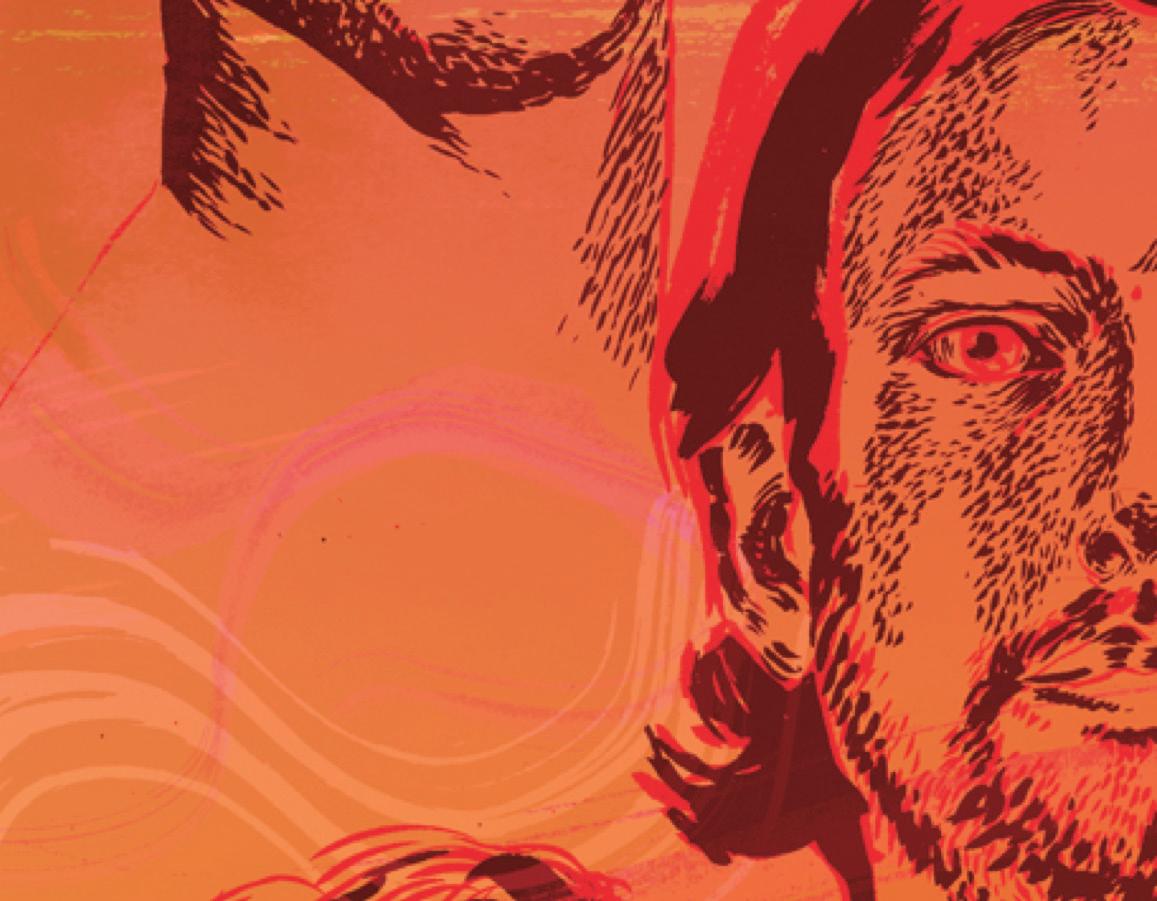
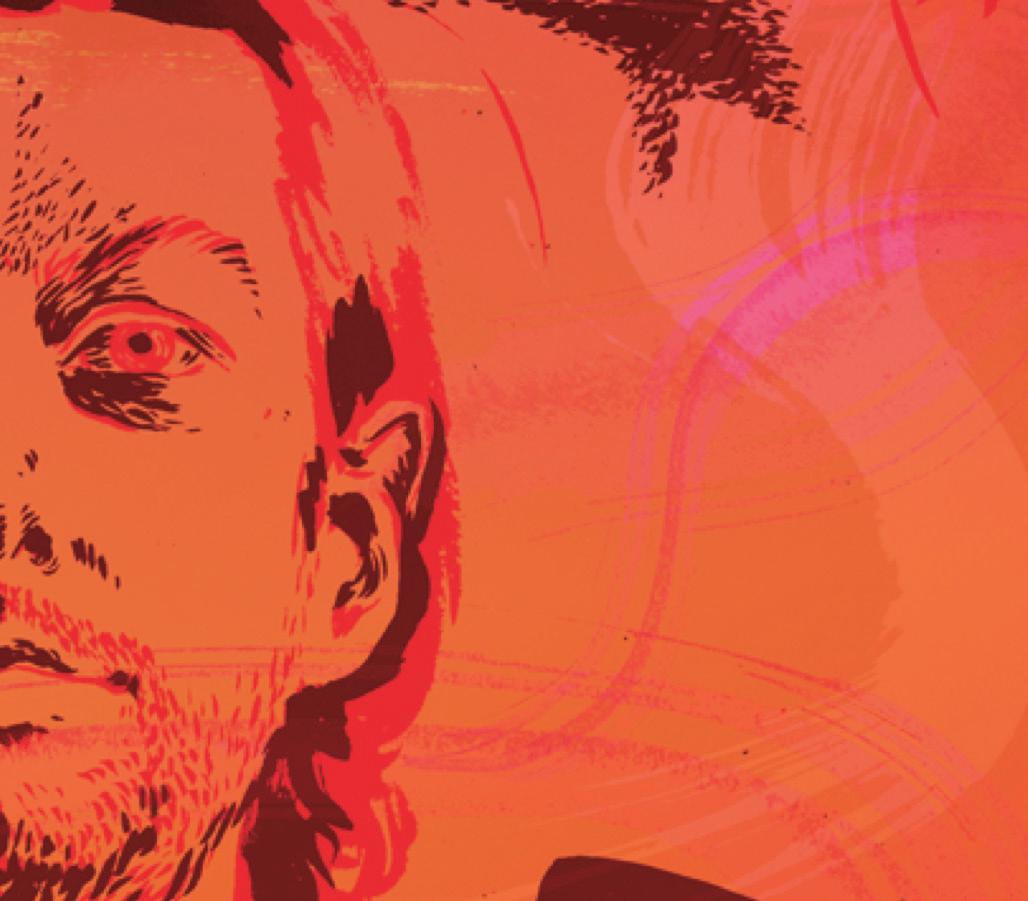
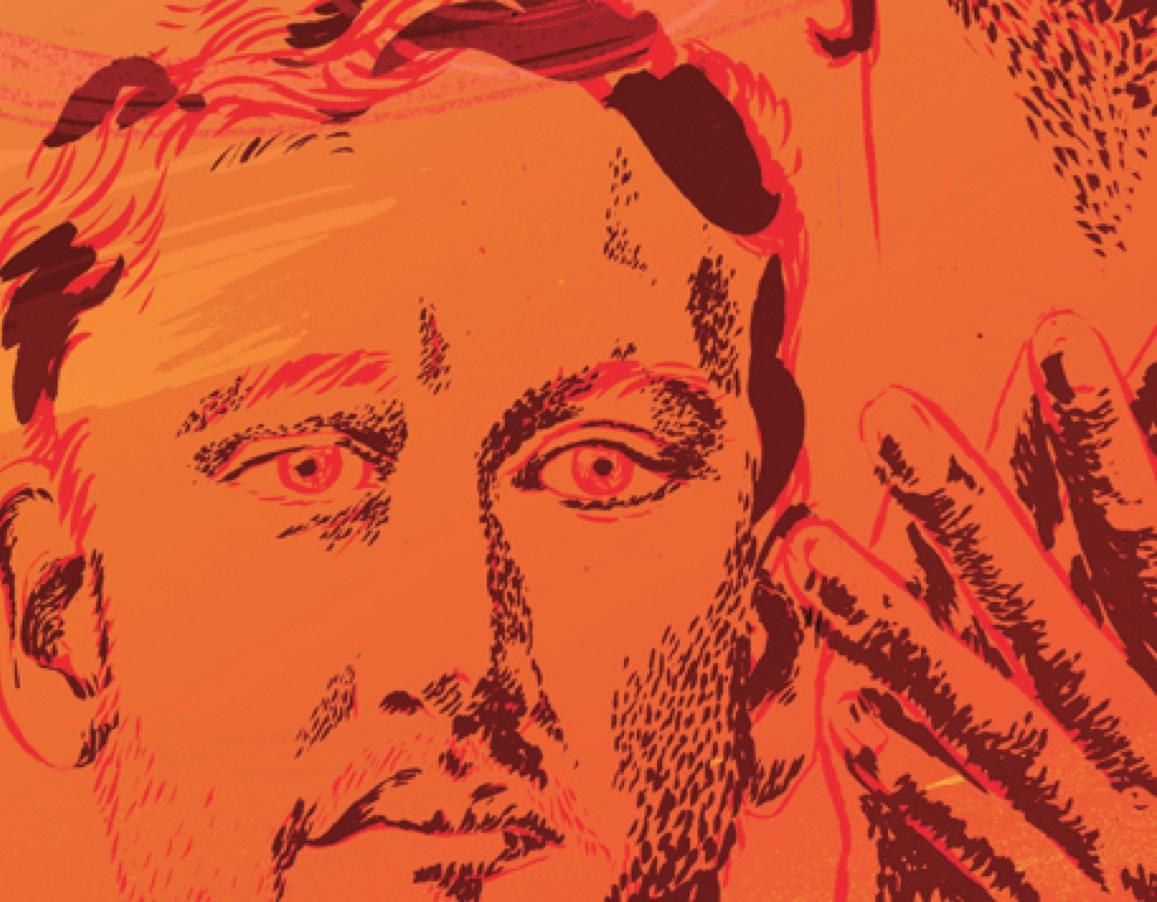

Grove’s thrillingly inventive EPs Queer + Blackand SPICEexplore sexuality, race and class via a bracing interpretation of dancehall: employing chopper-blade synths, industrial textures and vocal manipulation. How did you arrive at this sound, and how do you see it as serving these records’ themes lyrically?
Grove: Arriving at this sound was a total accident, but also a beautiful amalgamation of life experiences and connections. When I first started dabbling with multi-track production aged 16 on my little iPhone 4, I was making pure sugary pop – tinged with a little bashment. However, I think the frustration of seeing and reading up on classism (as well as struggling with my mental health), spurred a more dark , topical and direct approach to what I wanted to share. I think it’ll always be underpinned by those three pillars, but they’re subject to change
I like to have fun with the sonic side of production
The beautiful life experiences and connections I mentioned came through meeting Malaki Patterson: a pioneering mentor and hugely influential musiceducation figure for under-represented youth in Gloucestershire. He’s the Creative Director of charity ‘The Music Works’, and through working with them for years I joined 5 Mics, a beatbox hiphop collective, with beatboxers TMS and Sheps, as well as MCs Griz-O and JPDL who I’d be nowhere without. Also, myself and Diessa were a duo called BAAST, making hard, morbid, pretty depressing electronic music (our unbound.EPhas since been wiped from the digisphere) and attempted to refine that sound along the way.
Your work offers powerful explorations of race, most prominently in the track ‘Black’ from Queer + Black Since The Bristol Germ’s last instalment, the city played a very visible role in the Black Lives Matter movement: most strikingly in the globally publicised tearing down of Edward Colston’s statue To what extent did these recent events influence your music’s reflections on race?
G: Being dual-heritage, and growing up in a place with mostly white people, there has always been a battle as to whether I called myself black, or whether I even felt black. Would I be disregarding half of my heritage if I did? Would I be accepted in black communities due to my socialisation? Who am I and how did I come to be?





